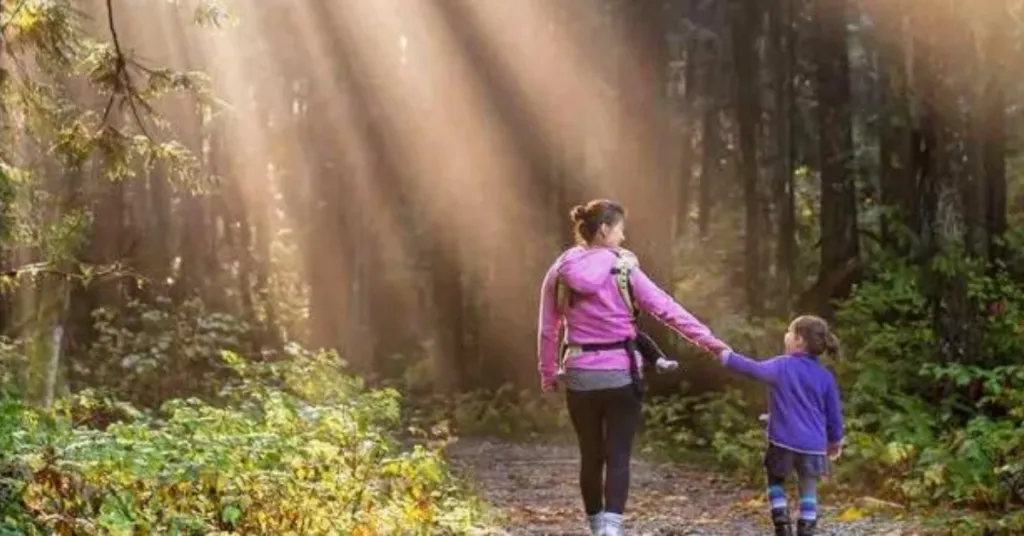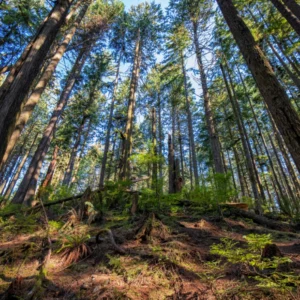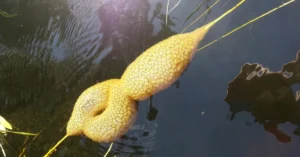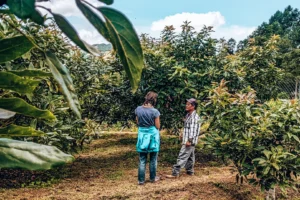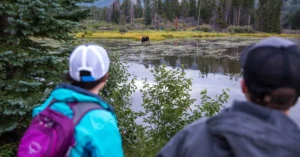Camping is a great way to connect with nature, but surprisingly, it often leads to a lot of waste. You might not think so, but even outdoor adventures can end up using lots of single-use plastics and generating trash. That seems a bit backward, doesn’t it? However, with a bit of preparation, you can turn your camping trip into an eco-friendly adventure. Embrace the principles of Zero Waste Camping Trips to ensure that your outdoor experience leaves minimal impact on the environment.
Start by choosing sustainable gear and packing snacks that don’t come in plastic wrappers. Planning is key to reducing waste. This approach isn’t just good for the planet; it also makes your time outdoors more rewarding.
We’ve already done the hard work of figuring out the best zero-waste practices, so you don’t have to.
Follow these simple tips, and you’ll find that zero-waste camping with kids isn’t just possible—it’s easy! Get ready to enjoy a cleaner, greener camping experience that your whole family will love.
Key Takeaways
- Use eco-camping methods to live in harmony with nature and lessen your impact.
- Select adventure gear that’s durable and can be repaired, fitting with zero-waste goals.
- Plan your meals to minimize waste during camping.
- Help protect natural sites by adopting zero-waste habits.
Adopt A Zero-Waste Approach For Sustainable Camping
Adopting a zero-waste lifestyle is essential for protecting our environment. This approach isn’t just about reducing waste; it’s about making every aspect of our lives more sustainable.
Zero waste is not limited to outdoor activities—it’s a comprehensive way of life that encourages us to make environmentally friendly choices every day.
One of the most impactful ways to live this philosophy is through eco-camping. This style of camping minimizes harm to nature by utilizing reusable products and leaving no trace behind.
By choosing eco-friendly camping with kids, we make conservation efforts a regular part of our lives, integrating sustainable practices into all our adventures.
Additionally, our articles on eco-friendly travel offer insights into sustainable travel practices that benefit our planet.
Small Steps Lead To Big Impact
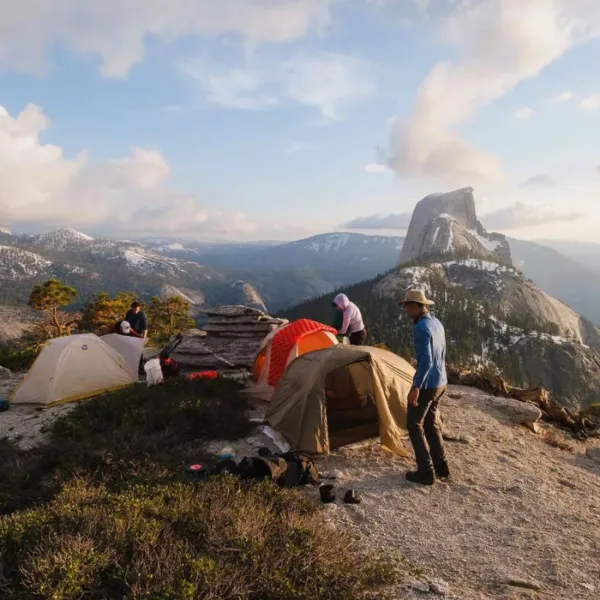
The philosophy of zero-waste living is like creating ripples in a vast pond—every choice we make affects the environment. Adopting a zero-waste lifestyle is more than a trend; it’s a commitment to cherish and protect our Earth.
This lifestyle requires careful consideration of our actions to ensure we don’t harm nature.
Instead of using items once and discarding them, we look for ways to reuse them, or we choose recyclable options. Our goal is to make decisions that leave no permanent mark on the planet.
It’s about wisely managing our resources—water, food, and energy—and considering how our decisions today will impact future generations.
Living zero waste involves making thoughtful choices to ensure a sustainable world for everyone.
While it may seem daunting, zero-waste living is about incremental changes that collectively make a significant impact.
By becoming more conscious of our daily habits, we can greatly contribute to protecting our planet. Every small step is crucial on our path to a cleaner, greener world!
Choosing Sustainability On Your Next Camping Trip
On our journey to improve camping habits, every action counts. Each time we choose a reusable bottle over a disposable one, or ensure we leave a campsite just as we found it, we’re helping to preserve nature’s beauty.
Here’s how to make your camping more sustainable:
- Choose Eco-Friendly Products: Opt for items made from sustainable or renewable materials, like bamboo or recycled content. These choices help reduce the demand for non-renewable resources.
- Be a Responsible Consumer: Before buying new gear, consider what you truly need. Use what you already own, borrow from friends, or invest in durable goods that last longer.
- Adopt Earth-Friendly Habits: Simple actions like picking up any litter you see, even if it’s not yours, or choosing solar-powered lights over battery-operated ones can make a big difference. These habits contribute to a healthier planet and a more enjoyable camping experience.
Organizing Your Eco-Friendly Camping Trip
Preparing for a zero-waste camping trip is crucial. Every effort to reduce our impact on nature counts.
Organizing a trip without leaving trash behind may seem challenging, but with careful planning and a checklist, it’s entirely achievable. Here’s how to plan a camping trip that’s both enjoyable and Earth-friendly:
- Know Your Destination: Research your camping location. Learn about local shops and markets near your campsite to support them and reduce packaging waste.
- Look for Certified Campsites: Opt for campgrounds certified as eco-friendly by organizations like Green Key or EarthCheck. These certifications indicate a commitment to sustainability.
- Prioritize Public Lands: Choose public lands, such as national forests or Bureau of Land Management areas, which often adhere to established Leave No Trace policies.
- Plan Your Meals Wisely: Buy food in bulk and opt for fresh items with minimal packaging.
- Pre-cook Meals and Snacks: This reduces waste and saves time, allowing you to enjoy your trip without constant cooking.
- Choose Vegetarian Options: Incorporating plant-based foods into your menu is beneficial for your health and the planet. It’s an effective way to lessen your environmental impact.
- Bring Reusable Water Containers: Essential for reducing plastic waste and staying hydrated, reusable containers are also better for the environment.
- Pack Light and Smart: Bring only what you need to minimize waste. Avoid overpacking and select versatile clothing and gear that can be used in multiple ways.
Selecting Eco-Friendly Camping Gear
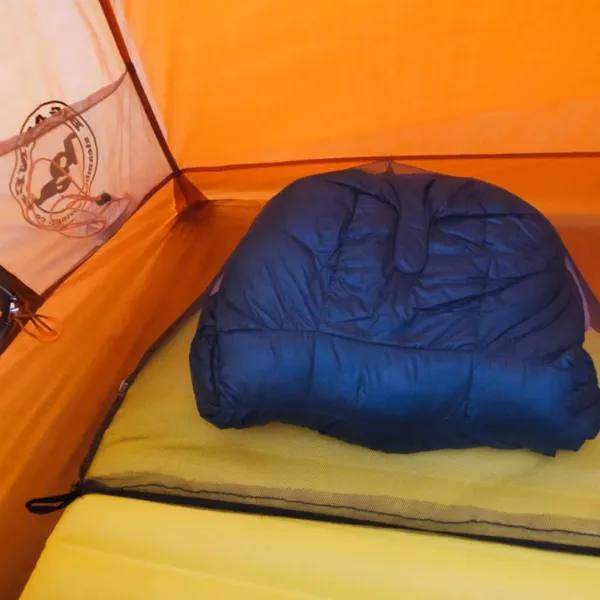
When selecting camping gear, we prioritize the environment. We opt for items made from natural or recycled materials, which are gentle on the planet.
These materials are durable and eco-friendly. Here are some excellent choices:
- Prioritize Durability: Choose camping equipment made from robust materials. Durable gear withstands repeated use and lasts longer, reducing the need for replacements and waste. This is not only eco-friendly but also cost-effective.
- Choose Natural or Recycled Materials: Look for gear made from organic or recycled materials. Tents, sleeping bags, and apparel crafted from these materials are better for the environment.
- Repairable and Replaceable: Opt for gear with parts that can be easily replaced or fixed. This enhances the longevity of your equipment and cuts down on waste. The BuyItForLife subreddit offers valuable insights and recommendations.
- Get it Second-Hand: Consider purchasing used gear from trusted sources or renting equipment. This approach lowers the demand for new products and lessens waste.
- Multipurpose Gear: Select gear that serves several functions. For instance, a set of camping pots with nesting components can be used for cooking, eating, and storage, minimizing the need for additional items.
- Solar-Powered Equipment: Use solar power instead of batteries. Solar-powered lanterns and chargers utilize the sun’s energy, which is free and clean.
- Repair Kits: Bring along repair kits, including patches for tents, sleeping bags, and air mattresses. Being able to mend minor damages on-site avoids the need to throw away or replace items.
- Avoid Single-Use Items: Steer clear of disposable camping gear or utensils. Choose reusable options like stainless steel utensils and refillable water bottles instead.
Planning Meals For Zero-Waste Camping With Kids
Planning meals is crucial for minimizing our environmental impact on camping trips. Here’s our approach:
- Choose Whole Foods: Opt for whole, natural foods. These are generally healthier and come with less packaging.
- Buy in Bulk: Purchasing food in bulk reduces packaging waste. Look for items like grains, beans, nuts, and dried fruits available in large quantities. This avoids the excess packaging of individually wrapped items.
- Avoid Individually Wrapped Items: Single-use packaging generates a lot of trash. Avoid foods that come in their own little wrappers or packages.
- Use Reusable Containers: Pack your food in containers that can be reused. Options include durable Tupperware or cloth bags. These containers keep your food fresh without needing plastic wrap or foil.
- Bring a Reusable Coffee Filter: Instead of single-use filters, bring a reusable coffee filter, French press, or tea infuser. Enjoy your favorite drinks without the waste associated with disposable filters or tea bags.
Cooking Practices For Sustainable Camping With Kids
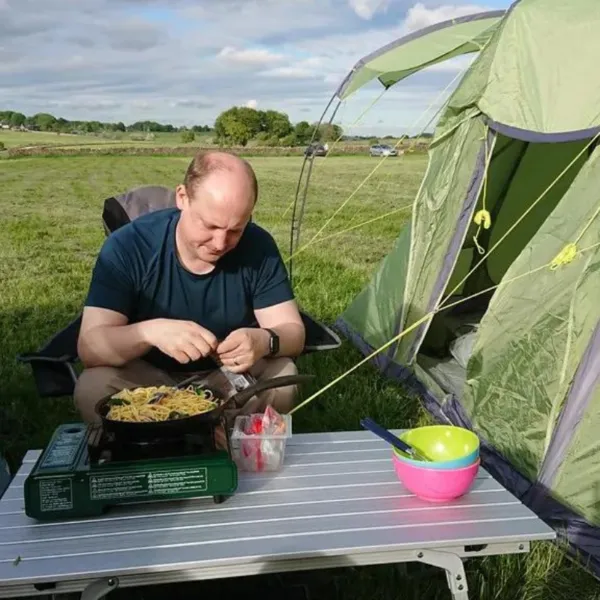
When cooking at our campsite, we prioritize eco-friendly equipment. Here’s how we ensure our cooking practices are sustainable:
- Renewable Resource Stoves: We opt for portable stoves that run on renewable resources, such as refillable gas canisters or biofuels. These stoves cook efficiently and help reduce our environmental impact.
- Efficient and Eco-friendly Fuel: Choosing stoves compatible with refillable canisters or liquid fuels is a wise decision. They burn cleanly and align with our goal to camp without harming nature. For a top choice, check out the BioLite CampStove.
- Durable Cookware: We invest in long-lasting cookware. Using durable pots and pans means less waste since they don’t need frequent replacement.
- Eco-Friendly Utensils: We use reusable, eco-friendly utensils instead of single-use plastics.
- Biodegradable Cleaning Products: It’s crucial to clean up responsibly. We use biodegradable soaps that naturally break down and don’t pollute the environment.
- Keep it Simple: Simple meal planning prevents unnecessary complexity. Check our list of easy camping lunch ideas for inspiration.
- Proper Food Storage: Correct food storage is essential. We use containers that effectively protect our food and prevent wildlife access, without generating waste.
- Responsible Food Waste Disposal: We dispose of food waste in a way that respects nature. Composting or packing it out are preferred methods, depending on the camping location.
- Eco-Friendly Firewood: We gather dead and fallen wood locally to prevent harm to living trees. If available, we use provided firewood and never bring our own to avoid spreading invasive species.
Selecting a Campsite For Responsible Camping
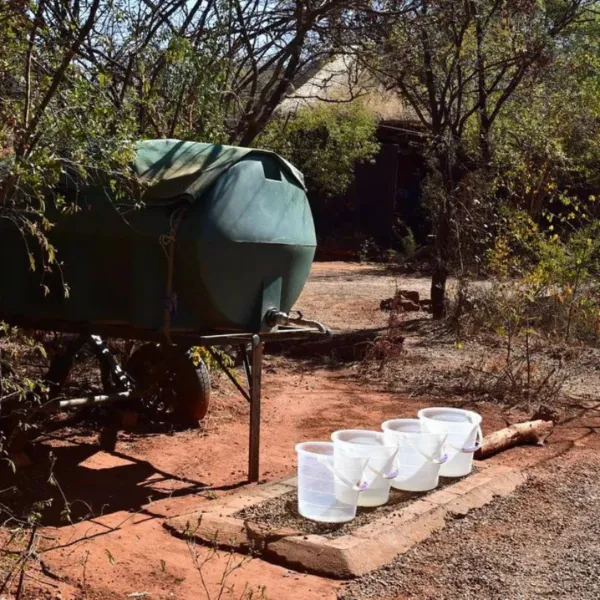
Selecting the right campsite is crucial for an eco-friendly camping experience. We’re not just searching for a place to pitch our tent; we aim to find locations that prioritize environmental care.
Sustainable campsites contribute more than just accommodations—they help maintain a healthy and balanced environment. Here’s how to choose a campsite that supports nature preservation:
- Look for Campsites that Reduce Waste: Opt for campsites with recycling programs and strategies to minimize trash. These sites might employ advanced waste management practices that are gentler on the environment.
- Check for Eco-Friendly Features: The best campsites often incorporate sustainable energy sources like solar power. They might also feature composting toilets, which are an excellent, eco-friendly waste solution.
- Support Conservation Efforts: Some campsites actively participate in conservation, protecting local flora and fauna. These campsites take measures to ensure the wildlife and natural habitats are preserved and thriving.
- Avoid High-Impact Areas: Steer clear of camping in sensitive environments such as wetlands, delicate meadows, or areas home to endangered species. These regions are particularly vulnerable to disruption.
- Read Reviews and Ask Locals: Gather insights from reviews by previous campers and consult locals. Their experiences can guide you to the most eco-friendly camping options available.
Eco-Friendly And Biodegradable Camping Products
Switching to natural personal care products is not only beneficial for our health but also kinder to the environment. When camping, it’s crucial to use items that don’t harm the earth. Here are some eco-friendly options that are easy to pack and environmentally safe:
- Biodegradable Soap and Shampoo: These products are designed to naturally decompose, so they don’t contaminate rivers or lakes. They’re ideal for outdoor use.
- Solid Shampoo and Conditioners: Solid hair care products eliminate the need for plastic packaging. They’re compact, lightweight, and space-efficient.
- Natural Deodorant: Choose deodorants made from natural ingredients. They’re gentler on your skin and better for the environment.
- Reusable Menstrual Products: Menstrual cups or washable pads are sustainable choices that minimize waste. They’re practical for camping and easy to manage on the trail.
- Reusable Washcloths and Towels: Bring along washcloths and microfiber towels that can be washed and dried quickly for repeated use.
- Portable Camp Shower: If there are no showers at your campsite, a portable camp shower is useful. These systems use gravity to help you bathe, minimizing water usage.
- Eco-Friendly Toilet Paper: Opt for biodegradable toilet paper that can be buried responsibly in a cat hole or packed out in a sealed bag to reduce environmental impact.
Essential Water Conservation Practices For Campers
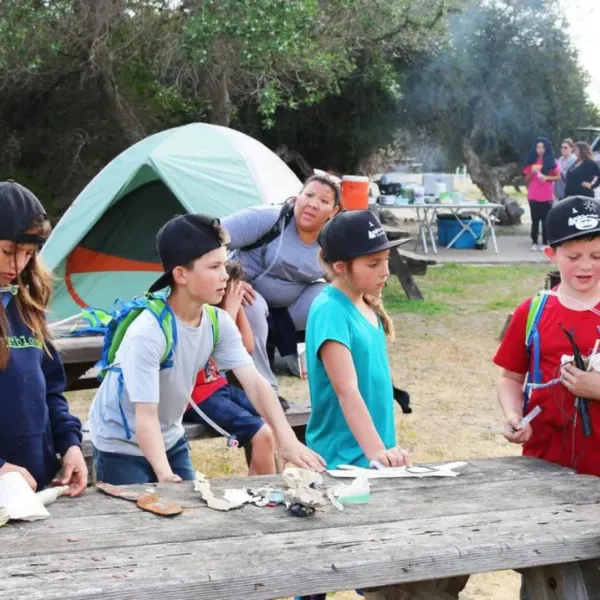
Conserving water is essential, especially when camping, as most campsites rely on local wells rather than municipal water. Saving water helps protect these crucial supplies. Here are some effective ways to conserve water while still maintaining cleanliness:
- Use a Spray Bottle for Cleaning: A spray bottle is an excellent tool for using just enough water for cleaning without waste. It’s ideal for washing dishes or giving yourself a quick rinse.
- Be Mindful When Washing and Brushing Teeth: Avoid letting the water run continuously while brushing your teeth or washing your face. Use only the water you need.
- Opt for Biodegradable Soaps: These soaps are safe for use in natural bodies of water. If you must bathe in a lake or river, biodegradable soaps will not harm the local flora and fauna.
- Bathe in Natural Water Sources Carefully: When bathing in natural water sources, do so responsibly. Keep a significant distance from the water source when using soaps and shampoos, even if they are biodegradable, to minimize ecological impact.
Green Activities For A Zero-Waste Camping
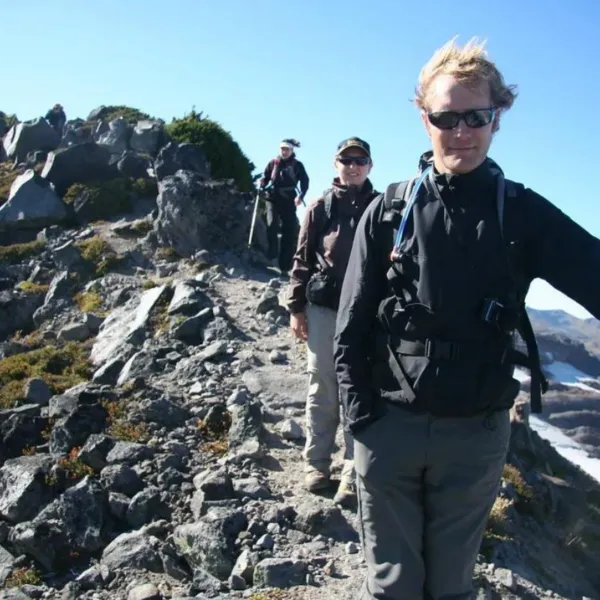
Enjoying the outdoors doesn’t mean compromising on eco-friendliness. Here are some sustainable entertainment options that are both fun and gentle on the environment:
- Card Games and Board Games: Pack a deck of cards or board games that use reusable pieces. These games are a great source of entertainment and produce no waste. With just one deck of cards, you can play a variety of games!
- Nature-Based Activities: Engage in activities that allow you to appreciate the natural world. Bird-watching, hiking, and stargazing are not only enjoyable but also environmentally friendly. These activities are ideal for exploring and connecting with nature.
- Bring Fun Couple’s Games: If you’re camping with a partner, consider bringing games designed for couples. Check out our list of 29 camping games for couples, suitable for any relationship stage. These games are perfect for adding a fun and personal touch to your camping trip.
Engaging Kids In Eco-Friendly Camping
Taking children on eco-camping trips offers more than just outdoor fun—it’s a valuable opportunity to instill lessons about environmental stewardship. Here’s how to make eco-camping with kids both enjoyable and educational:
- Teach Through Doing: Engage kids in zero-waste practices such as recycling, conserving water, and picking up litter. By involving them in these actions, they learn important habits through example and understand the reasons behind them.
- Nature as a Classroom: Utilize the outdoors to teach children about the flora, fauna, and ecosystems they encounter. This knowledge helps them appreciate and feel connected to the natural world around them.
- Sustainable Camping Practices: Include kids in setting up the campsite, preparing eco-friendly meals, and selecting sustainable gear. This hands-on involvement shows them how each decision can contribute to environmental protection.
- Fun Eco-Friendly Activities: Organize activities that are not only fun but also educational regarding sustainability. Activities like a nature scavenger hunt, tree and bird identification, or even crafting with natural materials can be engaging ways to learn about the environment.
Teaching Young Campers About Zero-Waste Practices
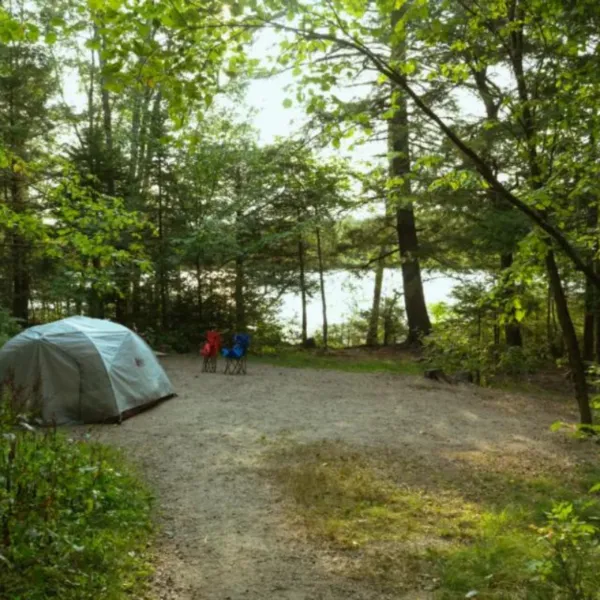
Teaching children to be responsible with nature is a critical part of eco-camping. When kids participate in zero-waste activities, they begin to understand the importance of taking care of the environment. Here are effective ways to educate them about sustainability:
- Sorting Recyclables: Engage kids in sorting recyclables. This can be a fun and interactive activity that helps them understand the importance of recycling over simply throwing items away.
- Leave No Trace Principles: Introduce them to the “Leave No Trace” principles. Explain why it’s crucial to leave nature as we found it so that others can enjoy it too. This teaches respect and care for natural spaces.
- Saving Water: Get kids involved in water conservation practices. Teach them to use only the necessary amount for cleaning or drinking. This is essential for maintaining a clean environment.
- Appreciation of Nature: Use the camping experience to teach about the local flora and fauna. Help them understand the role each plant and animal plays in the ecosystem and why each is important. This fosters a deeper appreciation and care for wildlife and natural environments.
Leaving No Trace Behind
As we wrap up our eco-camping trip with kids, it’s vital to leave no trace. This means packing up everything—gear, food scraps, and small items. Restore the site by filling holes and replacing rocks and sticks. Conduct a final sweep to ensure nothing is left.
Make sure the campfire is completely extinguished and cold to prevent wildfires. This careful cleanup shows our respect for nature and helps keep wildlife safe in their natural habitat.

